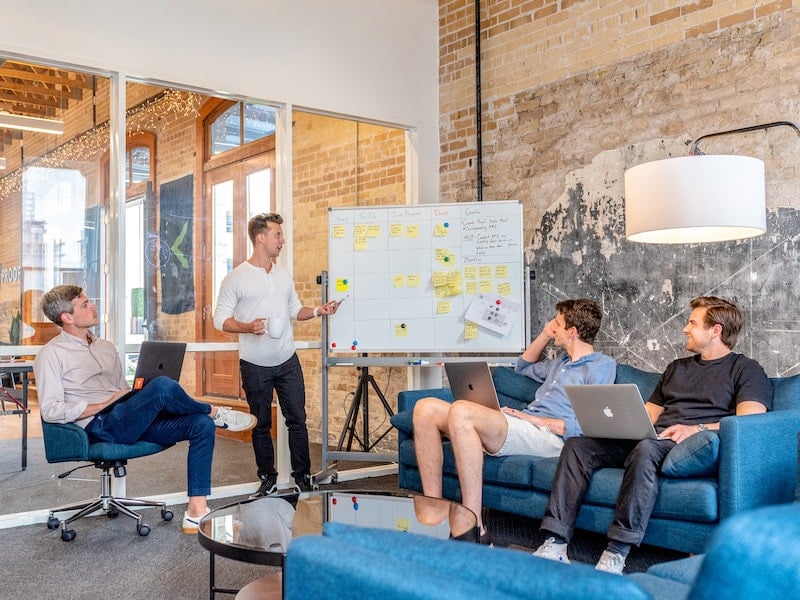The role of facilities management in staff retention and attracting talent
"Companies now look to facilities managers to understand the needs of their employees as well as clients and tailor the workplace environment to meet their combined needs."

By Andile Mgudlwa, Managing Director of Facilities Management Division at Empact Group
There is very little doubt that dealing with the global pandemic resulted in a significant shift in how we perceive our workplaces. Whilst society as a whole seems to have gone back to how things were before March 2020, the workforce and the businesses they are employed by seem to be divided on how best to move forward.
Employers are on a drive to get people back to the office for better corporate culture and face-to-face collaboration. Workers on the other hand seem to be torn between the flexibility that comes with working remotely (and the resultant savings on transport costs) and missing the in-person interaction they have with their colleagues when they are at the office.
Hybrid working arrangements seem to be the solution that more employers are adopting to address these different needs. Most companies have put policies and incentives in place to entice people to spend some time at the office with the option of working from home on selected days. Some of these initiatives are starting to produce the desired result, however a large part of the working population has found it difficult to abandon the comfort of their home offices.

For a significant shift to happen there needs to be a re-think in how the office is currently perceived. Insisting on keeping the office set up the way it has always been, is not an option anymore. In order to attract and retain key talent, employers need to come up with innovative ways to address the needs of the increasingly young workforce. More and more companies are now looking towards facility managers to support them develop workspaces that will provide the required balance and keep people engaged. This has resulted in a shift in the traditional role of a facilities manager, a shift referred to as “basement-to-boardroom”. Facilities management is now seen as one of the levers that employers can utilise to drive this strategy and deliver the required results.
Facilities managers who used to focus only on maintenance and the provision of services are now spending more time thinking about enhancing the experience of people working and visiting their facilities. Companies now look to facilities managers to understand the needs of their employees as well as clients and tailor the workplace environment to meet their combined needs. In order to remain competitive in the current talent war, a company’s employee value proposition needs to stand out above the competition. Facilities managers together with their clients need to constantly keep asking themselves what the future of working in an office building looks like.

Facilities managers have a number of tools available in their toolbox to support an organisation in meeting its strategic goals. Some these tools include:
1. Focus on the experience: Consider what the employees need and want in a workplace environment. It could be a comfortable work area, an inspiring view, or a quiet space to work. Tailor the workplace environment to meet these needs.
2. Create a healthy workplace: A healthy workplace environment is attractive to potential employees. Ensure that the workplace is clean and hygienic and provide access to healthy food and snacks. Encourage employees to take breaks and provide opportunities for physical activity.
3. Provide a modern work environment: A modern workplace environment is essential to attract new talent. Consider providing up-to-date technology, ergonomic chairs and desks, and advanced software applications.
4. Encourage collaboration: Employees want to work in a collaborative environment. Provide opportunities for team building and encourage cross-functional collaboration. Use collaboration friendly workspaces to encourage informal conversations and knowledge-sharing.
5. Promote work-life balance: Promote a healthy work-life balance by providing flexible working arrangements, such as remote work on certain days, flexible hours, or part-time work. Encourage employees to take time off and provide opportunities for training and development.
Deciding which is the best tool to reach the strategic goal will depend on the company’s specific requirements at the time and these requirements will evolve as the company’s strategy evolves. Facility managers and facilities management providers therefore need to keep their fingers on the pulse to ensure that the experience is in line with the company’s requirements. The real-time data that comes from the CAFM (Computer Aided Facilities Management) and IWMS (Integrated Workplace Management System) technologies will ensure that decisions made are informed and data driven. That way the facility managers will always support the organisation by enhancing the workplace experience to meet the ever-changing requirements of the workforce.

As Managing Director of the Integrated Facilities Management Division at Empact Group, chemical engineer Andile Mgudlwa went on to complete his Masters in Engineering Management, with a particular interest in renewable energy. Andile is committed to ensuring Empact Group’s Facilities Management is at the forefront of the sector.
Read the latest edition of Top HR Leaders:


.svg)











